What Fruits and Vegetables Can Dogs Eat?
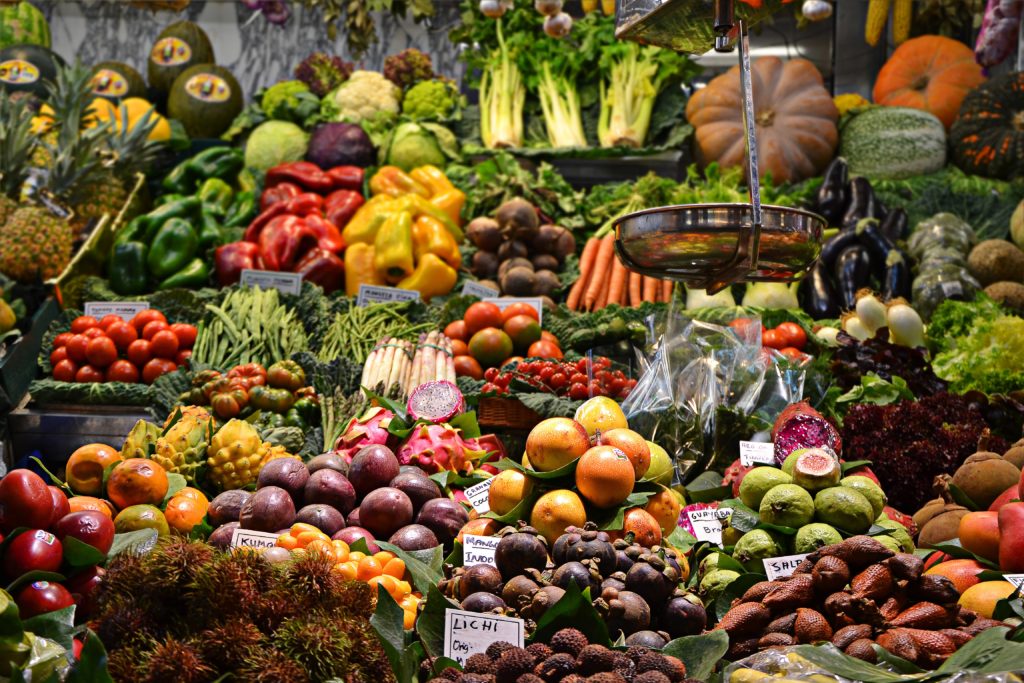
On the hunt for healthy foods to feed your dog? Look no further: in this article, you’ll find a complete list of the fruits and vegetables dogs can eat—and which ones they should avoid.
Armed with this information, you can supplement your dog’s normal diet with healthy fruits and veggies from time to time to give them some additional vitamins, minerals, and antioxidants.
Keep in mind, as you’re reading, that your dog won’t thrive on a purely vegetarian diet. Dogs are primarily carnivores, which means they need a high-quality source of animal protein to be healthy and happy. If you’re having trouble getting your dog to eat the right foods, check out our article on how to get your dog to eat everything you give them. And if your dog is underweight or a hard-gainer, consider supplementing their diet with a dog weight gainer.
And now without further ado, here are the best and worst fruits and vegetables for dogs.
Fruits Dogs Can Eat
You aren’t the first person to wonder: can dogs eat fruit? Unfortunately, the answer isn’t as simple as “yes” or “no.” Some fruits are perfectly safe and even healthy for dogs to eat, while others can be potentially harmful. So, what fruits can dogs eat? We’ll break them out into two groups to make it clear which is which. We’ll start with the fruits that are safe for dogs:
Apples
A lot of people wonder, can dogs eat apples? In this case, we’re happy to say that yes, you can feed your dog apples with no worries. Apples are a good source of nutrients like vitamins A & C, fiber, and antioxidants such as quercetin. Just keep in mind dogs won’t bother to eat around the core, so you’ll need to remove the core and seeds first.
Bananas
Next up: are bananas safe for dogs to eat? Yep, this is another good source of nutrition for your furry little friend. Bananas are a great source of potassium and fiber. They can be high in sugar, though, so exercise moderation. (You’ll also need to remove the peel, obviously; an excited dog might try to swallow it whole and end up choking.)
Blueberries
Yes, dogs can eat blueberries. These little blue superfoods are bursting with antioxidants and polyphenols, which help protect your dog’s body from harmful free radicals. Blueberries are easy to add to your dog’s food bowl as a nutritious addition to their meal, or you can feed them separately for a treat.
Cantaloupe
Believe it or not, your dog can eat cantaloupe too. The nice thing about cantaloupe is that it has a high water content, so it helps your dog stay hydrated on those hot summer days. Just don’t overdo it, because like many fruits, it also has a high sugar content.
Cranberries
Cranberries are another fruit that’s safe for your dog to eat. Although keep in mind your dog may not be a big fan of their tart flavor—cranberries are rarely eaten raw due to their strong taste. If your dog does happen to like cranberries, you can feel good knowing they’ll be getting a strong dose of antioxidants and healthy flavonols.
Mangoes
Yes, your dog can eat mangoes. This delicious fruit has a handful of different nutrients including beta-carotene, making it a fairly healthy snack. Just be aware of two things: one, you’ll need to remove the pit first to make sure your dog doesn’t choke. And two, mango is quite high in sugar, so only feed your dog mangoes in moderation.
Oranges
If you’re wondering will oranges hurt dogs, the answer is no—this is another healthy fruit your dog can enjoy. Oranges are well-known for being high in vitamin C, a nutrient that’s as good for your dog as it is for you. Just make sure to peel it for them.
Peaches
Peaches are another sweet, healthy fruit your dog is liable to enjoy. They contain vitamin A, an important nutrient, and make a great snack for dogs and humans alike. Be aware that their pits contain cyanide, so you definitely want to remove those before giving any peaches to your dog.
Pears
Are pears good for dogs? Turns out this is another fruit that’s A-OK for little Fido to snack on. This fruit contains a mixture of healthy nutrients like fiber, copper, and vitamin K. One bit of advice, though, is to give your dog fresh pears and skip the canned stuff—it’s often packaged in sugary liquid.
Pineapples
Will pineapple hurt dogs? Nope! This is another great choice for a healthy doggy snack. One unique benefit of pineapple is the fact that it’s high in digestive enzymes, which means it can help improve the digestion of other food. For that reason, it might be a good dietary addition for a dog with digestive issues.
Raspberries
Raspberries are an especially nutrient-dense fruit that’s perfectly fine for dogs. They’re low in sugar compared to other fruits, high in fiber, and contain a load of beneficial antioxidants.
Strawberries
Can your dog eat strawberries? Yep! This is another healthy snack for dogs. Strawberries are a great source of fiber and vitamin C and make a delicious treat.
Watermelon
Will watermelon hurt dogs? Nope—as long as you remove the seeds and rind first, this is a fine snack. In fact, similar to cantaloupe, watermelon is another fruit with a high water content that can help prevent dehydration.
Fruits Dogs Can’t Eat
Here’s a short list of the few fruits you should avoid giving to your dog. Each of these fruits contains a chemical, toxin, or other substance that can be unhealthy or even dangerous for dogs.
Avocado
Avocado is a healthy fruit for humans, but not your dog. The reason why: a toxin called persin. It’s generally considered harmless in humans, but it can lead to diarrhea and vomiting in dogs. Sorry, Spot—no guacamole for you!
Cherries
Believe it or not, cherry plants contain enough cyanide to potentially cause cyanide poisoning in dogs. Cyanide poisoning is a condition that robs your dog’s blood cells of oxygen, which could cause dilated pupils, difficulty breathing, and bright red gums.
Grapes
Grapes are an absolute no-no for dogs. We actually aren’t sure why grapes are so dangerous for dogs, but we do know this fruit has proven to be so toxic to dogs that it can even lead to acute kidney failure. Definitely keep them away from your dog.
Tomatoes
The fruit of a tomato itself is generally safe for dogs, but the green part contains the toxic solanine that can make your dog sick. And so, while tomatoes aren’t as bad as some fruits on this list, it’s still probably a good idea to just avoid them in your dog’s diet.
Vegetables Dogs Can Eat
Vegetables are well-known for being a healthy food, and the following vegetables are good choices for your dog. Vegetables have a couple of great benefits, such as being low in sugar and high in fiber and vitamins. So if you’re interested in adding a few to your dog’s diet, here are the vegetables safe for dogs to eat.
Broccoli
Broccoli is an extremely nutritious vegetable that won’t hurt dogs, so feel free to add it to their diet once in a while—but make sure to cut it up, because the stalks could pose a definite choking hazard. Also, just keep in mind broccoli can lead to some gastric irritation in some dogs.
Brussels Sprouts
Brussels Sprouts are a good choice for dogs. They’re healthy, low in calories, and loaded with vitamins and minerals. The only warnings you should keep in mind are: one, be careful of choking; and two, be aware that Brussels Sprouts can make your dog gassy. Don’t say we didn’t warn you!
Carrots
Can dogs eat carrots? We’re happy to say that yes, they can. Carrots are the quintessential source of beta carotene, a form of vitamin A that’s considered good for eye health. Another little-known benefit to carrots is the fact that their crunchy texture can help clean plaque off your dog’s teeth. Bonus!
Celery
If you’re wondering if celery will hurt dogs, we’ve got good news. Celery is a good choice for canines. It contains some trace vitamins and minerals, is extremely low in calories, and has a fairly high water content for a vegetable. It can also help clean teeth (like carrots), and might even freshen up your dog’s breath.
Green Beans
Green beans are another good choice for dogs. They’re a good source of vitamins A, C, and K; dietary fiber; and folic acid. They’re a low-calorie snack your dog might really enjoy. (Just avoid green beans with added sodium if you’re buying them canned.)
Peas
Are peas okay for dogs? Yep! You can feed many different kinds of peas to your dog—like snow peas, green peas, snap peas, and more. Because they’re small and soft, they’re easy to add to your dog’s bowl without any extra prep—and you don’t have to worry about them choking, either.
Spinach
If you’re wondering if spinach is good for dogs, the answer is yes—this leafy green is generally safe for dogs. Keep in mind, that while spinach is an extremely nutritious choice for Popeye, dogs should only eat spinach in moderation. The reason? Spinach contains something called oxalic acid, which might potentially lead to kidney damage in dogs who eat way too much of it.
Vegetables Dogs Can’t Eat
Vegetables aren’t always a healthy choice. Here are the vegetables you should avoid giving your dog due to toxins and other health concerns.
Asparagus
Not many people realize it, but asparagus isn’t a very healthy vegetable for dogs. Cooking destroys the beneficial nutrients, and it’s too rough to be eaten raw. So save your money and choose a better option for your dog instead.
Mushrooms
Will mushrooms hurt dogs? Unfortunately, the answer is yes—they can. Not all mushrooms are toxic, but some are…and there’s no way to be sure if store-bought mushrooms fall into that category or not. Your best bet is to play it safe and just skip the mushrooms.
Onions
Avoid giving your dogs onions, as well as other vegetables in the Allium family (such as chives and leeks). These plants are poisonous to many pets. They can cause stomach pain, nausea, diarrhea, vomiting, and even lead to ruptured red blood cells. Don’t feel bad, though. Most dogs would probably rather just eat some chicken.
In the End: The Best Food for Dogs is Dog Food
The fact that you’re researching which fruits and vegetables to feed your dog is admirable. And in moderation, some of the approved choices above can be a healthy addition to your dog’s diet.
But keep in mind that the best food for your dog is dog food. Why? Dog food has been specially formulated to contain all the most important nutrients your dog needs, in the right ratios.
Here at Bully Max, we sell a high protein dog food that’s loaded with stuff dogs love in a delicious chicken-based formula. It’s the only performance dog food to get a 5/5 rating from DogFoodAdvisor. We guarantee it will fuel your dog with the energy they need to look, perform, and feel their very best.
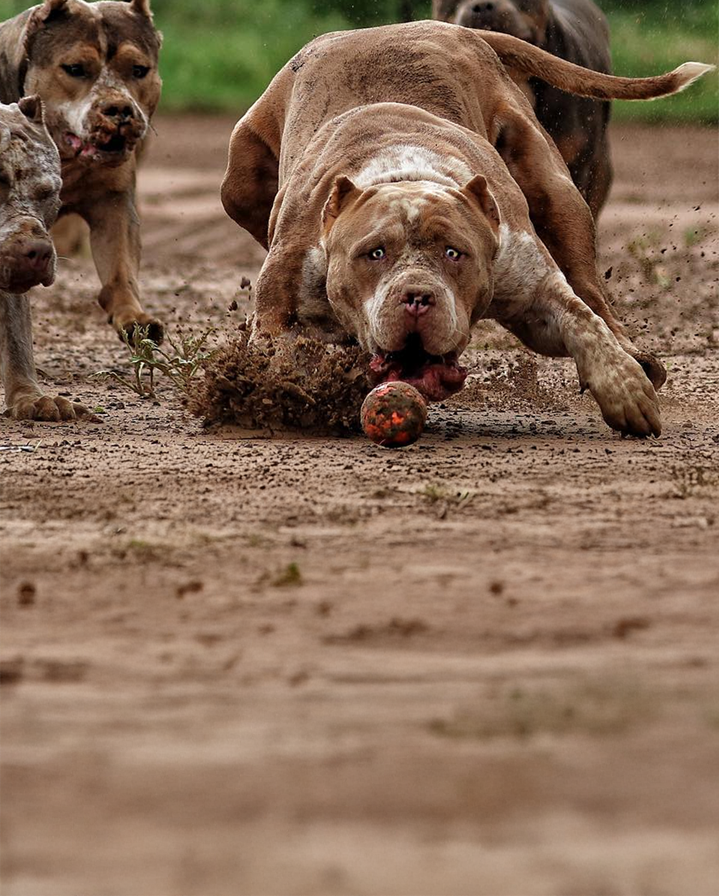
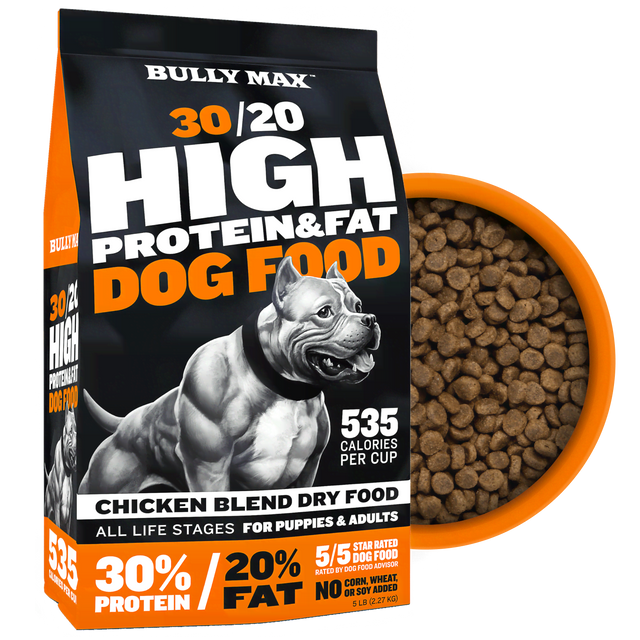
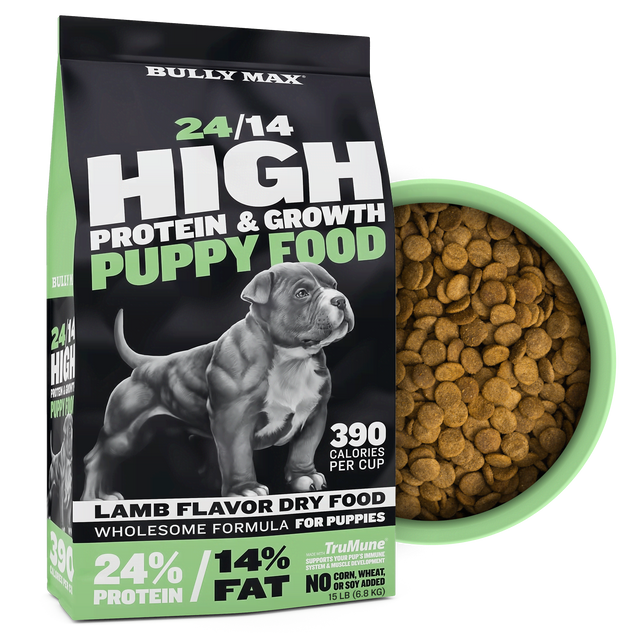
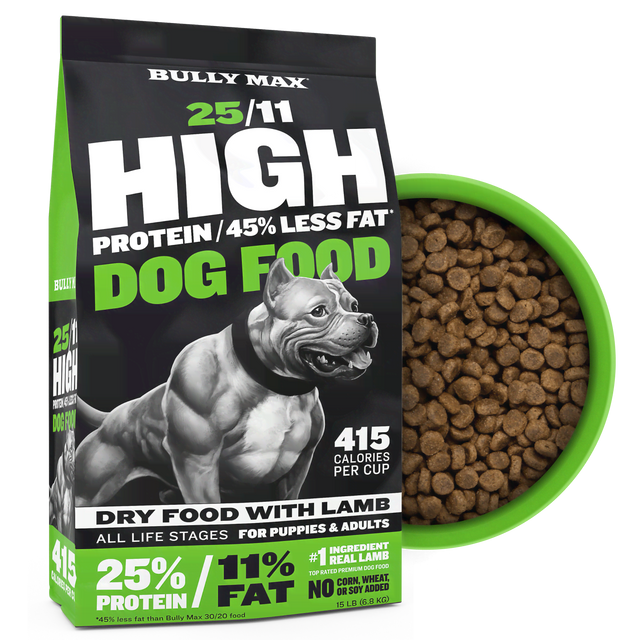
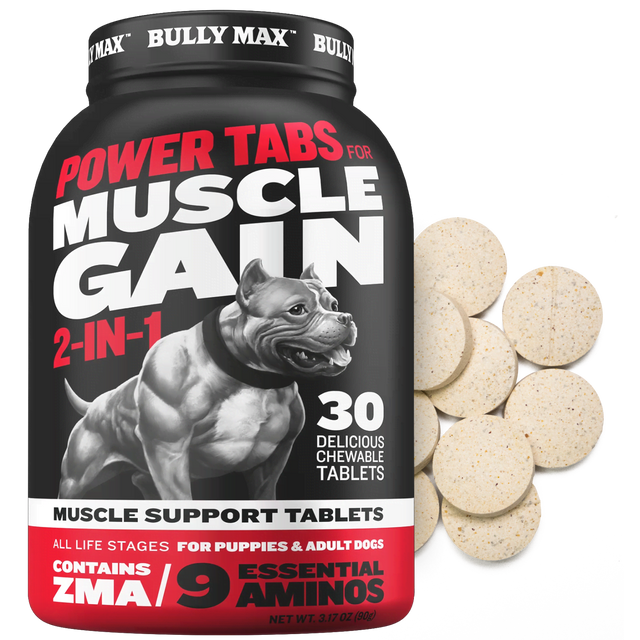




2 comments
I always learn something new when I visit your blog. Your posts are well-researched and thoughtfully written, and I appreciate the effort you put into creating content that is both informative and engaging. Keep up the fantastic work!
Nice